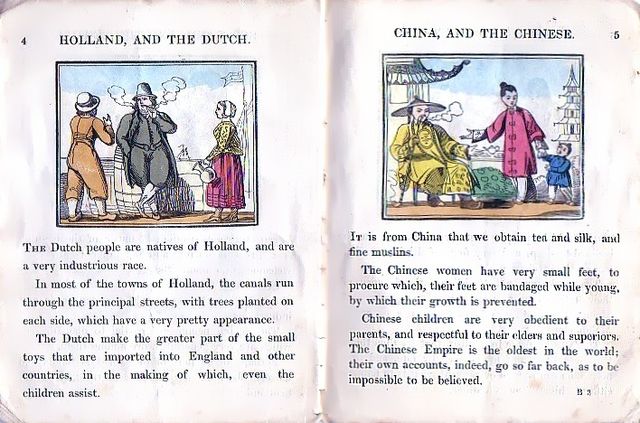Mores are social norms that are widely observed within a particular society or culture. Mores determine what is considered morally acceptable or unacceptable within any given culture. A folkway is what is created through interaction and that process is what organizes interactions through routine, repetition, habit and consistency.
A 19th-century children's book informs its readers that the Dutch were a "very industrious race", and that Chinese children were "very obedient to their parents".
Social norms are shared standards of acceptable behavior by groups. Social norms can both be informal understandings that govern the behavior of members of a society, as well as be codified into rules and laws. Social normative influences or social norms, are deemed to be powerful drivers of human behavioural changes and well organized and incorporated by major theories which explain human behaviour. Institutions are composed of multiple norms. Norms are shared social beliefs about behavior; thus, they are distinct from "ideas", "attitudes", and "values", which can be held privately, and which do not necessarily concern behavior. Norms are contingent on context, social group, and historical circumstances.
Shaking hands after a sports match is an example of a social norm.
"Normal = bad word", a graffiti in Ljubljana, Slovenia
Figure 1. The return potential model (reproduced from Jackson, 1965).




